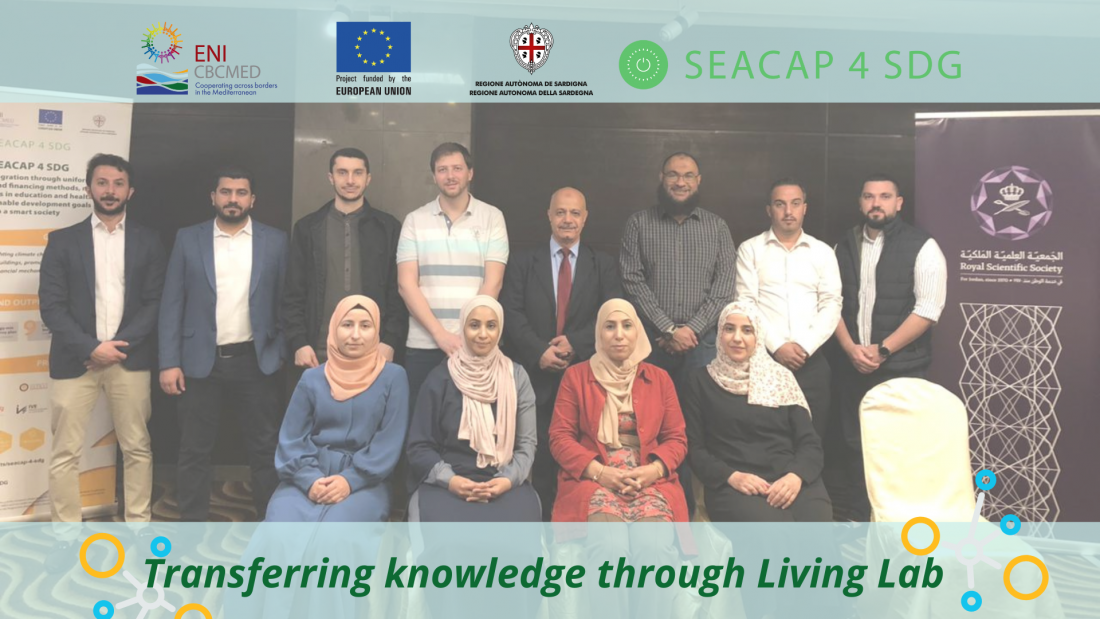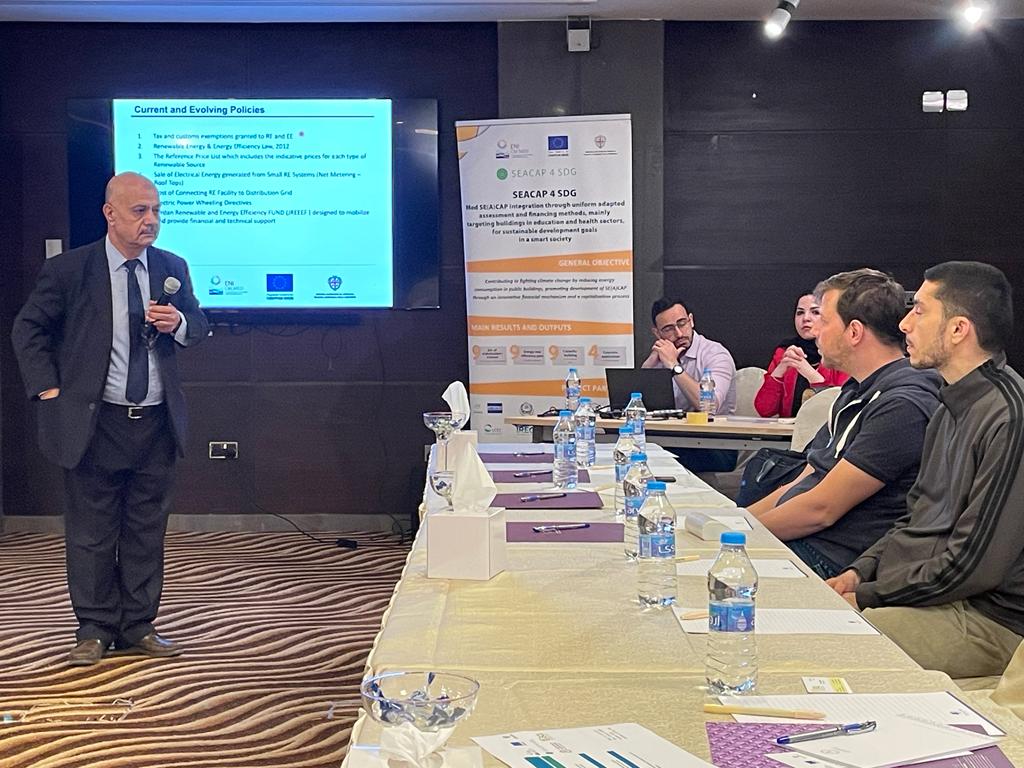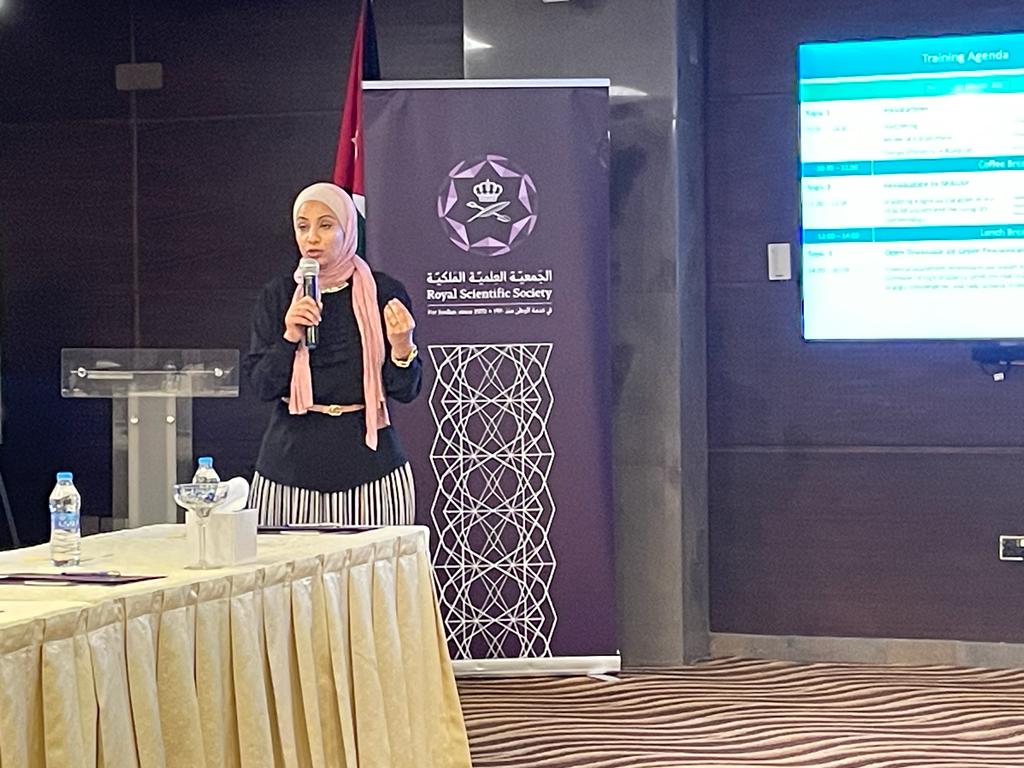SEACAP 4 SDG sharing knowledge on energy efficiency tools for public buildings in Aqaba (Jordan)

As part of SEACAP 4 SDG Project, the Royal Scientific Society, one of the main partners of the project, organized the first Local Living Lab training from 12-13 March 2023 in the Aqaba Special Zone Authority (ASEZA), selected as beneficiary of the support mechanism set up by the project in Jordan, in collaboration with the National Energy Research Centre (NERC), one of the specialized technical centres of the Royal Scientific Society (RSS), and Ecosol.
Situated in southernmost Jordan, Aqaba is the administrative center of the Aqaba Governorate and the energy sector in this area is an important part of the local economy and infrastructure. In fact, the Jordan municipality has one of the most recent baseline, since the SECAP submitted in 2017. One of the key strategies that the municipality has adopted is to decrease the Energy Bill by investing in more Efficient Municipality Buildings.


ASEZA is deeply committed to help the city reaching a more sustainable future, focusing not only in reducing the energy consumption through energy efficiency or producing more clean energy, but also on “greening” the existing as well as the future infrastructure of the municipality and the general sustainable city level. In fact, ASEZA has committed to a 14% reduction of the municipality’s GHG emissions as well as to an adaptation in climate change, in line with the national commitments for 2030.
“Our project in Aqaba City has been ongoing since 2017, and we are looking forward to achieve new outcomes through the use of different activities and toolkits (such as EDUFOOTPRINT tool) included in the SEACAP 4 SDG project.”
The training focused on the concept and goals of living labs (LLs), green procurement procedures, in addition to methods, tools, and best practices related to energy efficiency and renewable energy in municipal buildings, and how to implement the introduced methods in Jordan.









